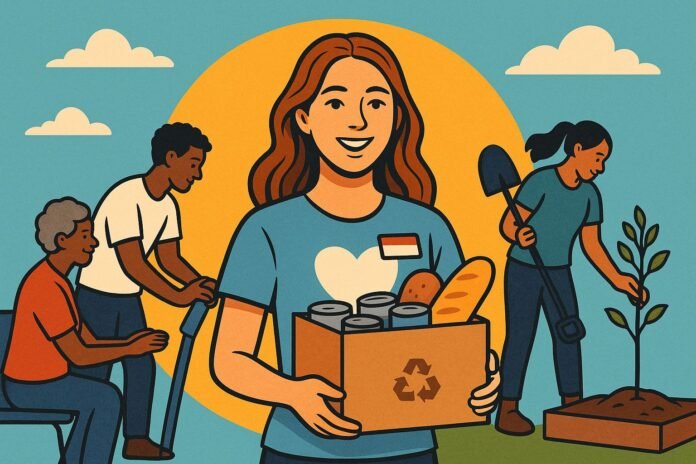From the lens of an ordinary human being, power is traditionally associated with politics, money and influence. But Gen-Z is simply not ordinary. In fact, in a world where corruption, discrimination and hate is the norm, Gen-Z remains ‘abnormal’. This abnormality we talk about is not traditional madness that is associated with psychological problems. Instead, in a world that is desensitized to the suffering of so many, a world that discards it as ‘normal’, the youth’s abnormality stems from their inability to let injustice occur.
Gen-Z strives to make change. To them, power is not limited to the amount of money you have in your bank account or the connections you have. It is about the impact you make. And to them, volunteering is not an optional activity one does on the side. Volunteering is their power: the power to do good, to challenge systems and rewrite the future.
Why volunteering matters to Gen-Z:
Unlike older generations, who kept their careers and morals separate, Gen-Z blends the two. Being digital natives, they have grown up being hyper-aware of global issues such as climate change, inequality and racial discrimination. The exposure has cultivated a strong sense of empathy that believes small actions can ripple into big change.
In the words of Margaret Mead, “Never doubt that a small group of thoughtful, committed citizens can change the world. Indeed, it is the only thing that ever has.”
Volunteering isn’t simply charity to them; it’s a statement of values. In a world that is fueled by capitalism and filled with social climbers who only work for themselves, the younger generation puts selfish needs aside to cater to the welfare of people. To them, volunteer becomes a form of revolution: a spark of change.
Why Gen-Z believes in doing good:
As a generation that believes in questioning everything, Gen-Z has always remained skeptical of polished advertising and traditional authority figures. They trust peers more than institutions. Volunteering is their means of living out their authenticity. To burst the bubble of performative activism and make change for good.
Additionally, volunteering also doubles as professional growth. Whether you’re cutting fruits for an iftaar drive or volunteering as a teacher, you are learning something new while polishing up your leadership skills and understanding how to effectively communicate. It makes volunteering both altruistic and strategic.
Unlike the ‘individual success’ narrative common in the older generations, Gen-Z believes in bringing people together. The sense of collectiveness and community volunteering brings will always feel a million times better than achieving a personal goal. It creates a sense of belonging; the feeling that you’re a part of something much bigger than yourself.
The Ripple Effect:
The most beautiful element of this approach is that volunteering no longer looks like a self-sacrificing act. The idea that the volunteer is a ‘saviour’ haschanged. The focus shifts from the person volunteering and instead it empowers the ones that need help. When you see a 16 year-old volunteering as teacher for younger students, it creates a sense of autonomy. The ripple is in effect when people realise that true power and agency lies in being change-makers. It holds more power than any politician’s speech ever will.
The Future:
For Gen-Z, volunteering is not just a hobby, it is their philosophy. It is their way of expressing discontentment towards leaders who claim to bring about change but never do. And their every action creates hope for others. In their hands; volunteering is not just doing good; it’s redefining what power means in the 21st century. And the biggest lesson one can learn from this is that true power doesn’t reside in wealth or authority, it’s in working towards change; even when no one is watching.







